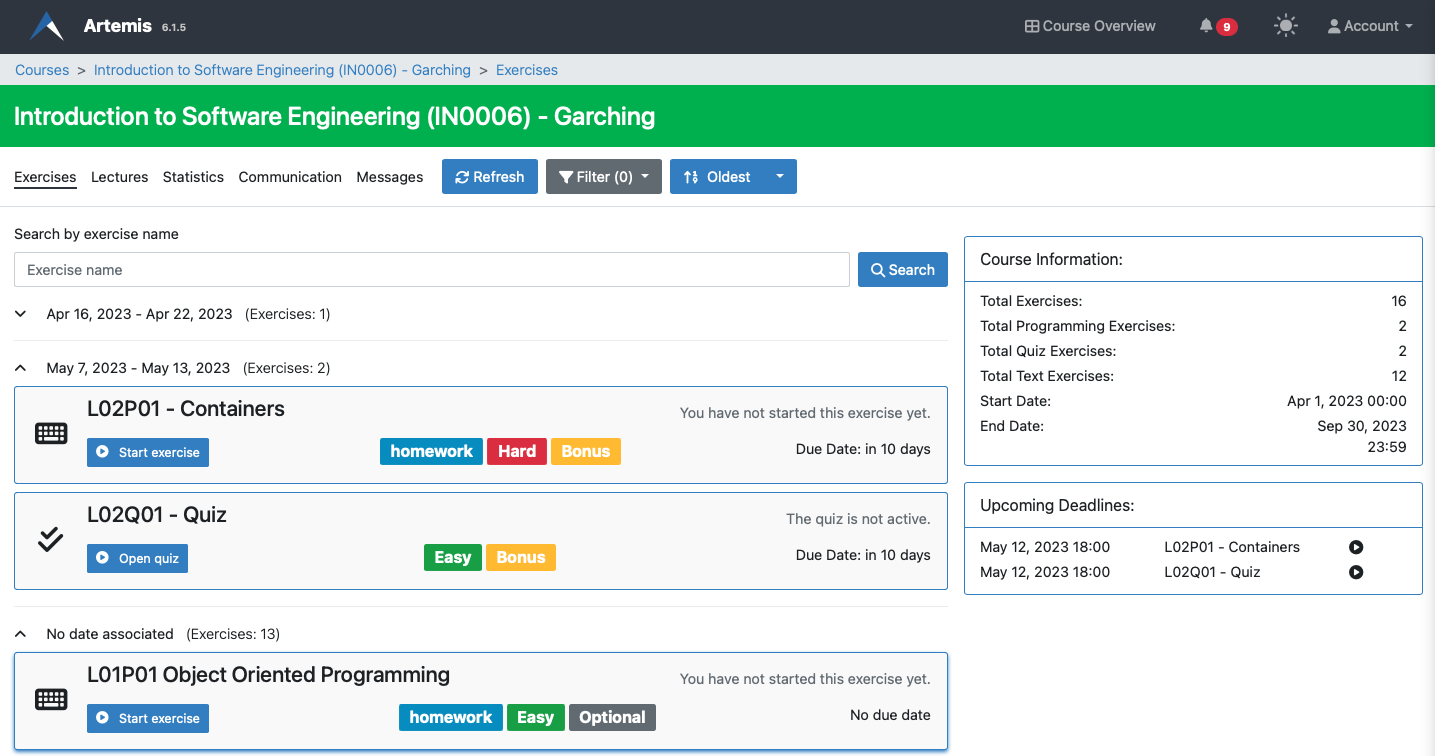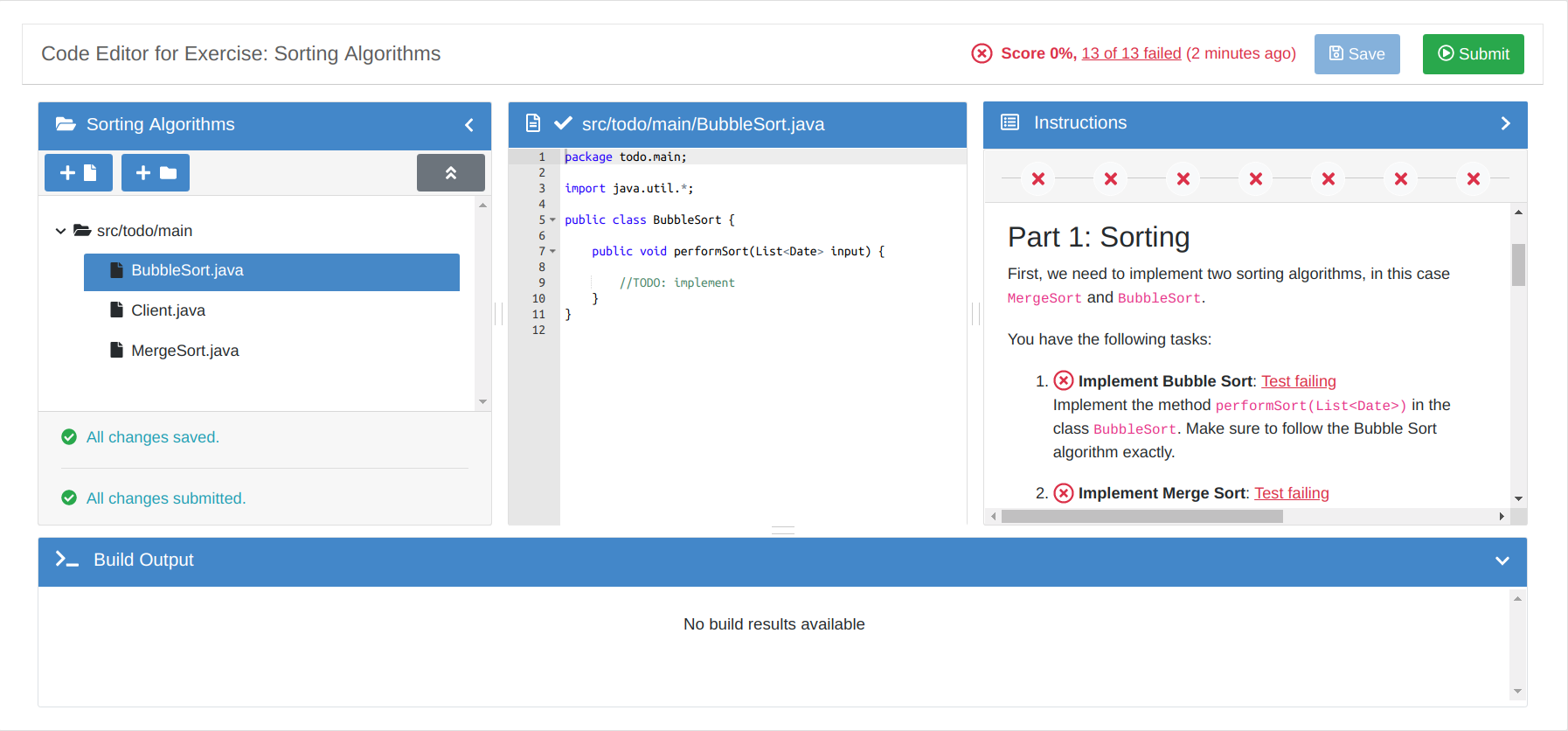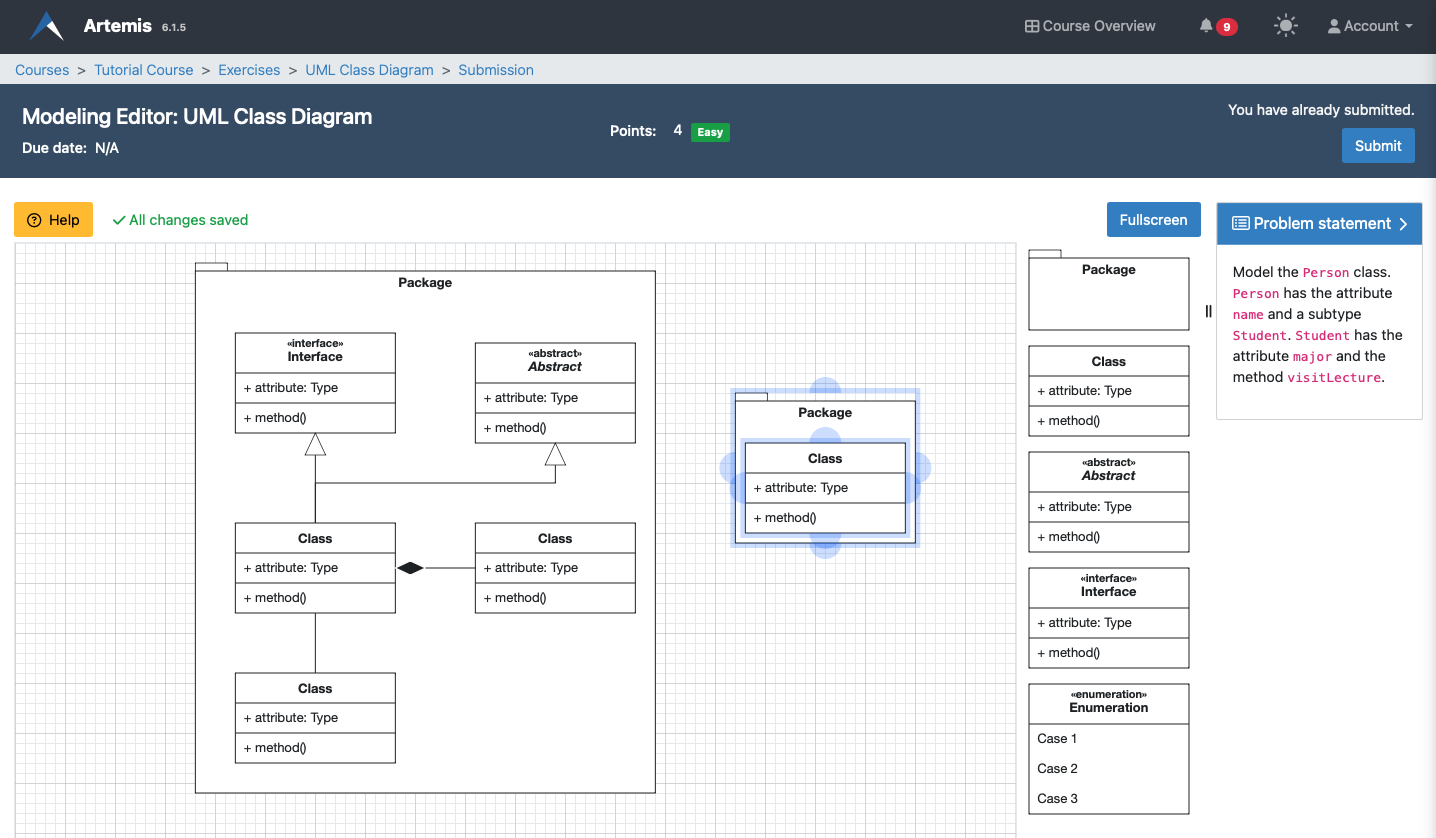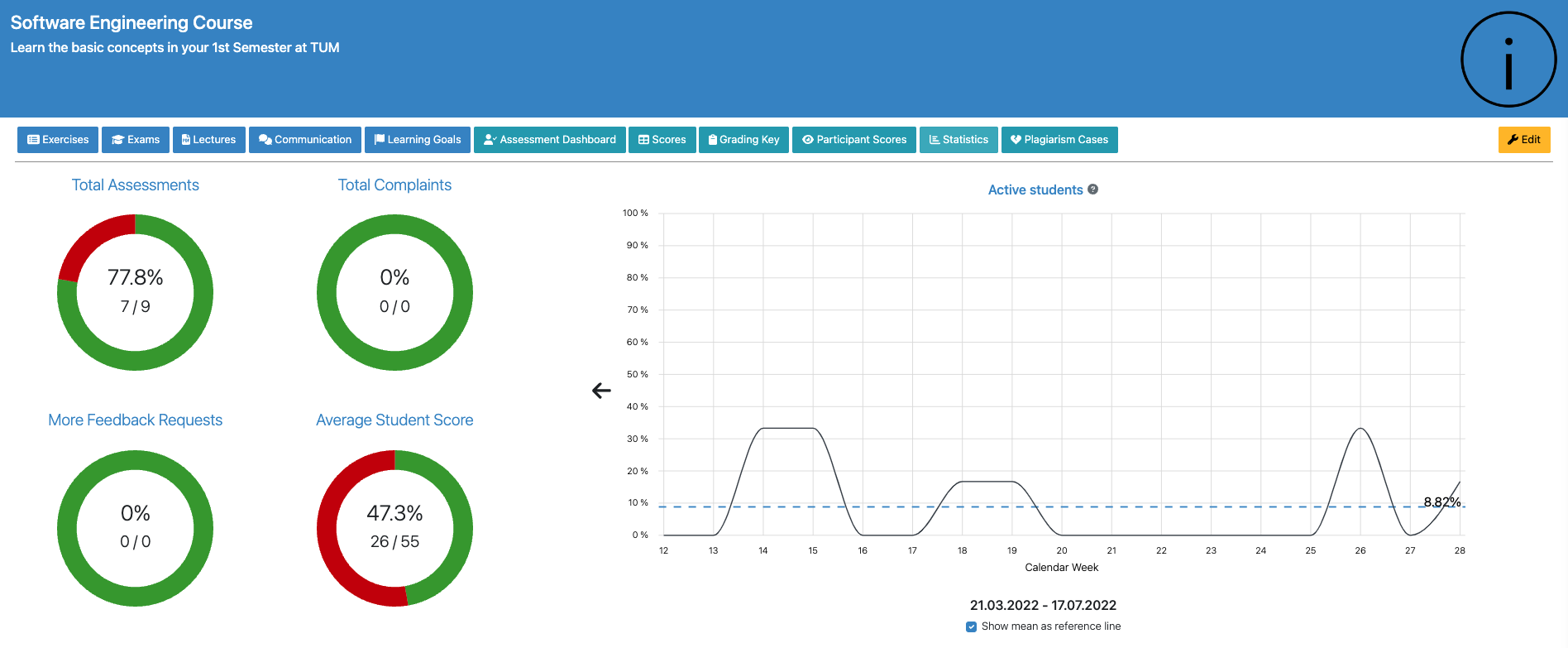Artemis is a free learning and research platform with a focus on individual feedback to support interactive and adaptive learning. It provides a universal platform for teaching and learning. A growing open-source community maintains it with a focus on usability, user experience, and performance. Artemis offers students to participate in various exercise types and to experience small learning units such as videos, quizzes, slides and texts. It includes an exam mode based on constructive alignment and integrates a chat for enabling the communication with students.
Courses
Instructors can host courses on Artemis with multiple exercises, lectures, and exams. Students can enrol in courses and gain access to the exercises, to individual feedback, to statistics and communication features.

Exercises
One of the main features of Artemis is the support of a variety of exercise formats:
- Programming exercises include automatic assessment, version control, and feedback based on test cases and static code analysis. Programming exercises are customizable and support any programming language. The feedback received is instant, interactive, and descriptive. Students can participate locally in their preferred IDE or in the online code editor. Interactive tasks and UML diagrams in the problem statement change their color based on the progress of the participating student
- Programming exercise

- Quiz exercises include multiple-choice, drag and drop, and short answer questions. Instructors can easily create drag and drop quizzes based on UML models, and there is support for live mode (rated) during lectures and a practice mode for students to repeat the quiz as often as they want.
- Modeling exercises are based on the easy-to-use online modeling editor Athena with semi-automatic assessment using machine learning concepts. There is robust support for UMl diagrams and the interface allows students to create models easily using drag and drop.
- Modeling exercise

- Text exercises include manual and semi-automatic assessment based on supervised machine learning and natural language processing using Athena.
There is also support for team exercises, including real-time collaboration and dedicated tutors per team.
Built for teaching and learning
Artemis aims to create a unified platform for instructors to teach and manage their courses and for students to learn. There are different statistics for instructors to evaluate the average student performance based on exercises and competencies, and for students to compare themselves to the course average and their other courses. Instructors can upload lecture slides, divide lectures into units, integrate video streams, lecture recordings, and exercises into lectures, and define competencies. Instructors can provide manual feedback so that students improve their skills on the platform. They can also create and share example solutions.
- Learning analytics for instructors

Grading
In order to increase consistency and fairness, double-blind grading and structured grading criteria are used. Artemis integrates an assessment training process (based on example submissions and example assessments defined by the instructor), includes a grading leader board, and allows students to rate the assessments. Students can ask for more feedback or complain after receiving their assessment in case something is unclear or the review contains mistakes.
Communication
Instructors can post announcements, facilitate discussion and answer student questions. Artemis supports customizable web and email notifications, and users to enable and disable different notification types.
- Students can also ask private questions to instructors

Exams
Instructors can create online and onsite exams with exercise variants, integrated plagiarism checks, test runs, student reviews, and an integrated attendance check. It is possible to conduct paperless exams with a full automated grading process, scaling to multiple thousand students.
Open Source
Artemis is free to use and has a large community with many active maintainers. With more than 140 contributors and a weekly release cycle, Artemis is constantly being improved: https://github.com/ls1intum/Artemis
Community
There is a growing community of more than ten European universities who are using Artemis. More information on Artemis and a detailed overview of its features can be found on the official documentation